Syria Reports Another 'Israeli Air Attack' Targeting Sites Near Damascus
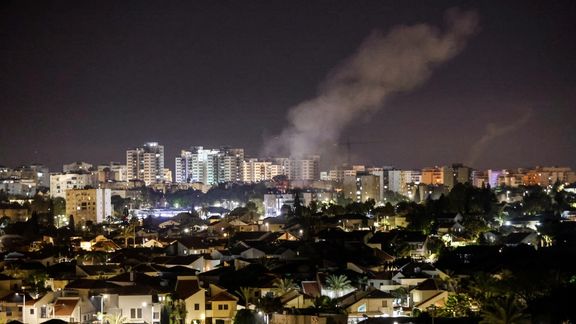
Syria said its air defenses on Saturday intercepted Israeli missiles targeted at sites in countryside around the capital Damascus and downed some of them.

Syria said its air defenses on Saturday intercepted Israeli missiles targeted at sites in countryside around the capital Damascus and downed some of them.
Two soldiers were injured and some material losses occurred, the statement added, according to military sources quoted by state media. State TV had earlier reported that explosions were heard in the countryside outside Damascus.
This is the second air attack in five days that Syria has blamed on Israel.
Asked about the attack, an Israeli military spokesperson said: "We do not comment on reports in the foreign media."
Israel, alarmed by Iran's growing regional influence and military presence in Syria, has said previously that it has carried out hundreds of strikes in Syria to slow down Iranian entrenchment.
The Syrian Observatory monitoring group based in London reported on Friday that Iran's IRGC has started training militias in the use of military drones.
Iran has been deeply involved in the Syrian civil war since 2011 to support Bashar al-Assad. It has deployed tens of thousands of its own forces and Iraqi, Lebanese, Afghan and Pakistani militias.
Report by Reuters
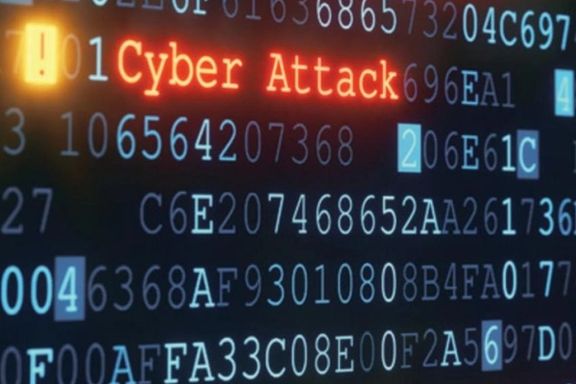
Iranian hackers have attacked an Israeli data and internet company, five days after an apparent cyberattack disabled a payment system in Iran’s gas stations.
A hackers' group called Black Shadow announced on social media that they have seized a large trove of data from the company and its clients and asked them to pay a ransom if they do not want publication of the information.
The Jerusalem Post confirmedthat websites serviced by Cyberserve internet company are down as it refused an initial demand to pay ransom. The newspaper said that the group had attacked other Israeli companies in the past.
Around noon time on Tuesday, more than 4,000 gas stations in Iran experienced disruption of a payment system for cheaper, rationed gasoline that every Iranian has uses to receive a limited amount of cheap fuel every month. The disruption has been mostly resolved after three days, but Iran has not officially accused Israel, which in the past has targeted Iran with cyberattacks.
The latest attack by the Iranian group could be an attempt to show that Iran can respond to cyberattacks as the large-scale disruption at gas stations has hurt its image domestically.
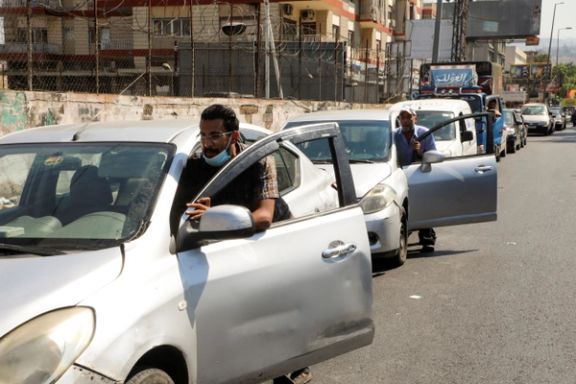
The US Treasury on Thursday imposed sanctions on two top Lebanese contractors and a lawmaker close to the Hezbollah movement over large-scale corruption.
Businessmen Jihad al-Arab and Dany Khoury, close to former Lebanese Prime Minister Saad al-Hariri and Christian politician Gebran Bassil respectively, were sanctioned for alleged corruption related to state contracts.
Lawmaker Jamil Sayyed was sanctioned for allegedly seeking to "skirt domestic banking policies and regulations" and transfer $120 million abroad, "presumably to enrich himself and his associates," a Treasury statement said. This will have an impact on Hezbollah’s reputation.
The Treasury alleged that Khoury and Arab both received state contracts worth hundreds of millions of dollars, thanks to political connections.
The allegations come amid an unprecedented economic crisis in Lebanon blamed on years of bad policies and corruption by the ruling elite.
Thursday's sanctions mark the first time a close associate of Hariri, a pro-western figure, is sanctioned by the US, which previously focused on Iran-backed Hezbollah and its allies.
"The Americans are sending a message to the entire political class, not just those backed by Iran," Maha Yahya, director of the Carnegie Middle East Center in Beirut, told Reuters.
US Secretary of State Anthony Blinken characterized the new sanctions on Twitter as "an important step in promoting accountability in Lebanon."
"Lebanese officials must end corruption and take urgent action to address the crises the Lebanese people face," he said.
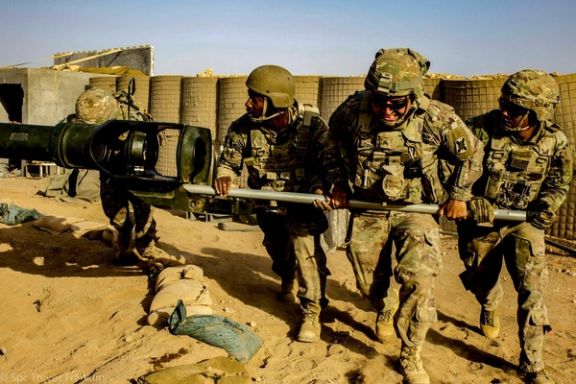
US officials say they believe Iran was behind the drone attack last week at the military outpost in southern Syria where American troops are based.
Officials said Monday the US believes that Iran resourced and encouraged the attack, but that the drones were not launched from Iran. They were Iranian drones, and Iran appears to have facilitated their use, officials said, speaking on condition of anonymity to discuss details that have not been made public.
Officials said they believe the attacks involved as many as five drones laden with explosive charges, and that they hit both the U.S. side of al-Tanf garrison and the side where Syrian opposition forces stay.
Pentagon spokesman John Kirby declined to provide details when asked about the report during a news conference Monday. He called it a “complex, coordinated and deliberate attack” and said the US has seen similar ones before from Shia militia groups that are backed by Iran. But he would not go into specifics and said he had no update on the munitions used in the attack.
Kirby also declined to say if troops were warned ahead of time or whether the US intends to make a military response.
“The protection and security of our troops overseas remains a paramount concern for the secretary,” Kirby said, referring to Defense Secretary Lloyd Austin, “and that if there is to be a response, it will be at a time and a place and a manner of our choosing, and we certainly won't get ahead of those kinds of decisions.

A top Israeli official has told Iran International that an attack against Iran's nuclear targets has become a priority, as media say that training will begin.
"The Israeli Air Force will begin practicing for a strike on Iran’s nuclear program beginning next year, having set aside funding and updated its training schedule for the mission," the Times of Israel reported. The newspaper said that while plans were in draft, some parts could be ready quickly while others would take over a year to be fully actionable.
A senior Israeli military official told Iran International's correspondent in Tel Aviv Monday that attacking Iran was now the Israeli air force’s top priority. Last week the Israeli media revealed the government had a $1.5-billion budget for an attack on Iran's nuclear facilities that covered fighter jets, bombers, and intelligence gathering drones, as well as specialized munitions that could penetrate Iran's underground sites.
Israel has for decades accused Iran of pursuing a nuclear bomb. Iran has repeatedly declared that it has no intention of attaining atomic weapons and its program has been closely monitored by the International Atomic Energy Agency. An Israeli attack would be the first on nuclear sites under IAEA inspection.
Iran has also repeatedly declared that it has no intention of pursuing nuclear weapons and criticized the International Atomic Energy Agency for allegedly having "double standards" when it comes to Israel's nuclear program and possession of nukes which it neither confirms nor denies.
Some in Iran, and elsewhere, have said the latest Israeli threats are meant to sabotage Iran's talks with world powers in Vienna to revive the 2015 nuclear agreement, the JCPOA (Joint Comprehensive Plant of Action).
"Israel's limited military sabotage in Iran will continue but the regime will not dare to launch a military attack against Iran," foreign relations commentator Hassan Lasjerdi told Iran's Rouydad news website Monday. Israel's recent threats resulted from Iran's expression of willingness to return to the JCPOA, Lasjerdi said.
Yossi Cohen, former head of the Israel intelligence agency Mossad, recently said that Iran “was not even close to acquiring a nuclear weapon” and that Israel needed to look to build on the JCPOA rather than continuing its opposition.
But others think Israel is ready for military action as it sees itself in danger. “I think an Israeli attack on Iran is definitely possible," Sohrab Sobhani, US-based chairman of Caspian Group holdings, told Iran International. Sobhani said authorities in Tehran lacked a “proper understanding” of Israel's position: “Preservation of Israel means everything to Israel and Jews around the world, irrespective of who rules in the United States.”
Ali Shamkhani, Iran’s top security official, Sunday said Sunday Israel should reconsider its spending plans. "Instead of allocating $1.5 billion budget for atrocities against Iran, the Zionist regime should focus on providing tens of thousands of billion dollars funding to repair the damage that is going to be caused by Iran's shocking response,"he tweeted separately in English, Hebrew, and Arabic.
Iran has ballistic missiles capable of reaching Israel as well as allies in Hezbollah and Palestinian groups who have shorter-range missiles. Israel regularly attacks targets in Lebanon and Syria, and Monday Syrian media reported Israeli attacks on facilities reportedly linked to Hezbollah near the Israel-occupied Golan region of Syria.
But besides its powerful air force, Israel also has long-range missiles that can reach Iran, and ultimately its nuclear weapons, if Iran decides to inflict unbearable damage on its cities.
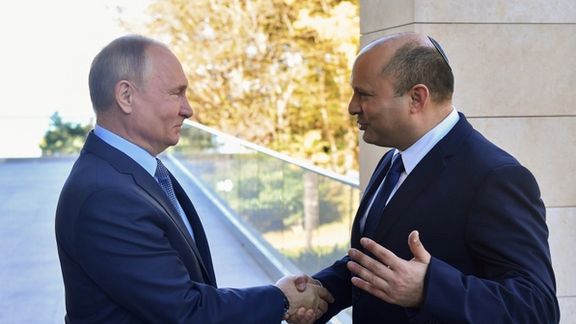
Syrian said Israel attacked targets southern Syria on Monday in a frontier zone where Israel has long been concerned about the presence of Iran-backed groups.
The Israeli military declined to comment.
A Syrian foreign ministry source said Israel had committed "a new aggression in the southern region" at dawn, the Syrian state news agency SANA reported.
Israel has mounted regular strikes against what it has described as Iranian-linked targets in Syria, where Tehran-backed forces including Lebanon's Hezbollah have deployed in support of President Bashar al-Assad during Syria's war.
A pro-Assad source familiar with the incident said an Israeli drone had struck several sites including a base operated by Hezbollah in al Baath city in Quneitra province and a second target. A third missile hit a reconnaissance tower near a Syrian army base, the source said.
The Syrian Observatory for Human Rights, a UK-based organisation which reports on the war, said an Israeli aircraft had fired rockets at two positions held by Syrian government forces and their allies in Quneitra province.
The attack had caused material damage and there was no information yet about casualties, it said.
Syria was discussed last week at a meeting in Sochi between Israeli Prime Minister Naftali Bennett and Russian President Vladimir Putin, Assad's most powerful ally.
Bennett told his cabinet on Sunday the two secured "stable and good" understandings over Syria - an allusion to deconfliction efforts with Russian forces amid continued Israeli air strikes on suspected Iranian assets.
Syria affirmed its right to respond to the attacks, the foreign ministry source quoted by SANA said.